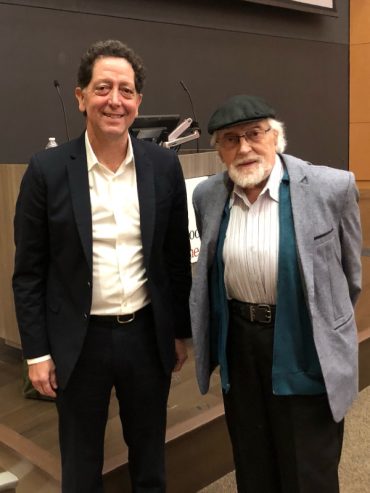

In 1982, researchers discovered the first family of cancer-causing genes, which included the Kirsten rat sarcoma virus (KRAS), a gene that provides instructions for making a protein called K-Ras that relays signals from outside the cell to the cell’s nucleus. The KRAS gene is estimated to be a factor in up to 30 percent of all human cancers, including lung, pancreatic and colorectal cancer. At the time, the protein was deemed “undruggable.”
In 2013, Kevan Shokat, currently an investigator at the Howard Hughes Medical Institute, professor in the Department of Cellular and Molecular Pharmacology at the University of California at San Francisco and professor in the Department of Chemistry at the University of California at Berkeley, published the first covalent inhibitors of KRAS G12C using a tethering screen. Following this groundbreaking strategy, many pharma companies have developed their own KRAS programs leading to phase I/II clinical trials in this space, a landmark for what was once thought to be an undruggable oncogene.
Shokat, one of the leading figures in the field of chemical genetics, presented his findings in an October 11 lecture titled “Overcoming the Undruggable Nature of the Most Common Human Oncogene K-Ras.” The lecture, the seventh in the Francis Johnson Lecture Series, took place in Stony Brook Medicine’s Medical and Research Translation (MART) Building auditorium and came on the eve of Johnson’s upcoming 50th anniversary as a Stony Brook faculty member in November.
Johnson, who was in attendance, joined Stony Brook in November 1973 after a 16-year stint at The Dow Chemical Company, during which he rose to the position of Research Scientist. Upon leaving, he joined the faculty of the Department of Pharmacological Sciences at the Renaissance School of Medicine as a professor, with a joint appointment in the Department of Chemistry in the College of Arts and Sciences.
His significant scientific contributions encompass four areas: stereochemistry, the structure and synthesis of natural products, the chemistry of DNA damage and repair, and the chemistry of diseases of aging. In the field of molecular structure, Johnson advanced a theory of conformational behavior of unsaturated compounds called “Allylic Strain” that covers many areas of chemistry and biology. The principal review article describing these ideas is one of the most quoted papers in the history of organic chemistry.
The Francis Johnson lectureship series was endowed by two former graduate students: David Walt, founder of Illumina, a multi-billion dollar biotech company with more than 10,000 employees, and Bill Murray, a former vice president of Chemistry at Johnson & Johnson.
Please click here for full article.
